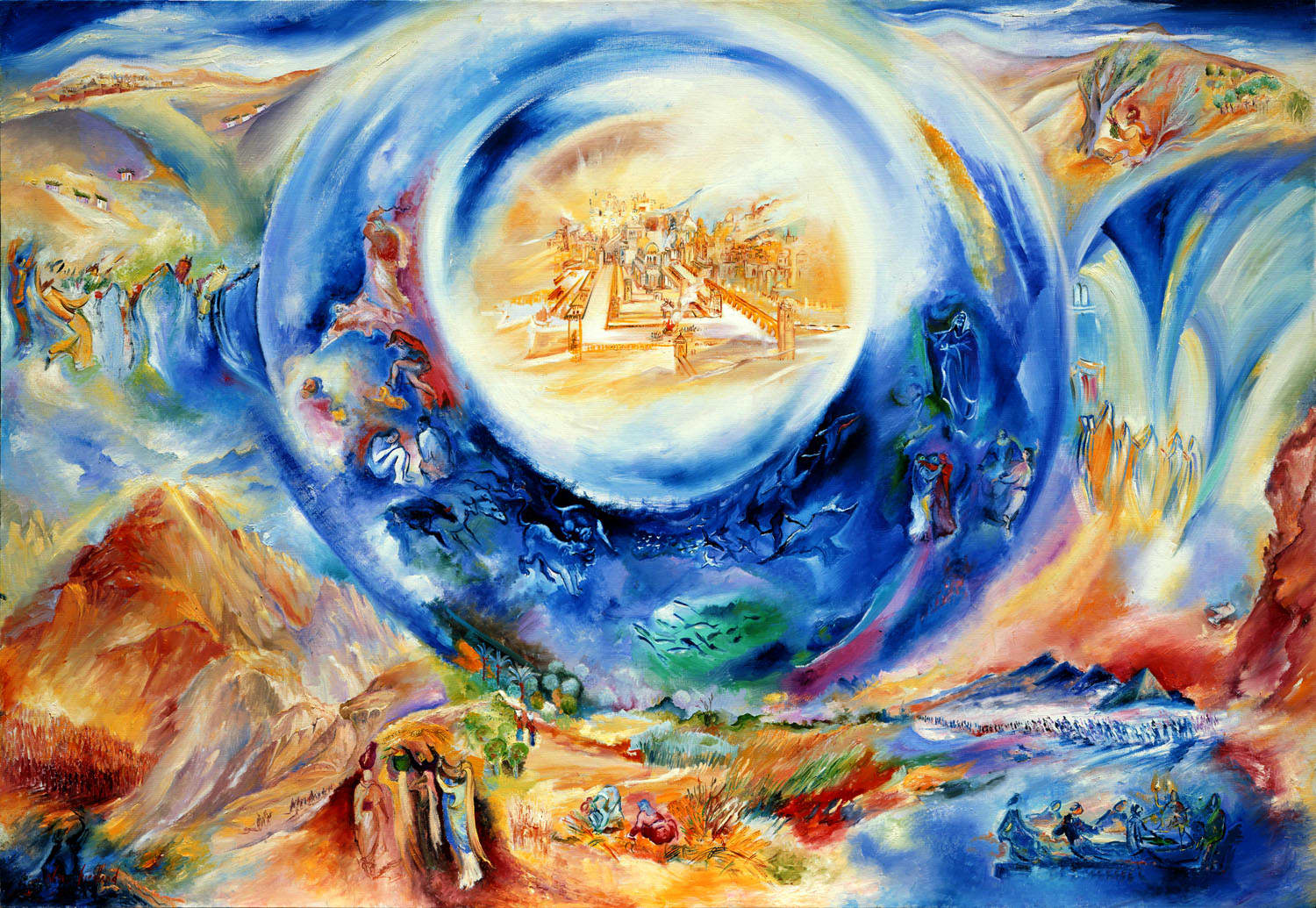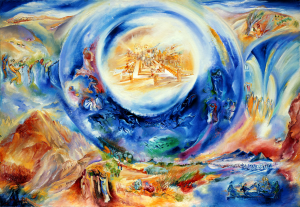The first parasha in the Book of Bereishit is probably the most challenging and difficult of all sections of the Torah. The verses that describe the unfolding of the creation of the universe are cloaked in mystery and laden with allusion. And yet, though the language of the verses is difficult and the ideas sublime, we sense that this parashah contains the key to understanding the very foundation of all existence.
Strangely enough, perhaps the single greatest mystery of all, the question that has occupied mankind’s intellect and imagination since the very dawn of life, is actually very clearly and simply answered in this parasha: What is the purpose of our existence? Why did God create us? Why are we here? This existential dilemma has tortured and tantalized man since the day of his creation, but the Torah makes short work of it in Bereishit, preempting the question with a relatively clear, albeit brief statement that is therefore easily overlooked.
God took the man and placed him in the Garden of Eden to work it and guard it. (Bereishit 2:15)
This statement is surely not as exciting as a talking serpent, nor as enticing as the luscious fruit of a certain tree, yet it lays out the mandate for all human endeavor with two simple words: working and guarding. As the Torah continues, more commandments will be added in order to flesh out the parameters of this mandate and give humankind the tools to fulfill it; in fact, the very next verse contains critical information, in language that may be considered a commandment, regarding the trees of the Garden, specifically which trees can be eaten from and which must be avoided. The ensuing books of the Torah add more and more commandments, some for all of mankind and others exclusively for the Jewish People, yet all of the commandments may very well fit into these two primordial categories: “working” and “guarding”.
Let us consider these categories and the dynamic each sets in motion: ‘Working’ implies forward movement, expansion, while ‘guarding’ implies the creation of boundaries, of containment. These two gestures are not mutually exclusive; quite the opposite, they represent two sides of the same coin, a type of “yin and yang”, opposites that balance one another and create a sustainable existence. This is what Rabbi Soloveitchik referred to as an unresolved Hegelian dialectic, in which thesis and antithesis can – and indeed must – coexist without melting into a synthesis.
The course of human history may be seen as an expression of man’s basic attempts to subdue and harness nature for his needs; this expansive urge is the “work” we do. But what of protecting nature? Can we similarly describe human history as the ongoing search for balance, as the quest to preserve the resources at our disposal, to preserve and renew the world in which we live? Has human history tended far more to be a story of “scorched earth” policy in which the work of human progress ignores the commandment to protect the Garden, for our own protection? Has human history repeatedly been the story of the man who kills the goose that lays the proverbial golden eggs?
“Scorched earth” is a concept borrowed from military jargon, describing a policy employed by a conquering force bent on decimating the opposing force. This policy is born of a particular breed of tunnel vision in which the end justifies the means and all casualties are seen as unavoidable collateral damage. No thought is given to the realities that will exist at the end of the war; no consideration is given to the viability of life in the conquered territory. Fundamentally, the conqueror sees himself as inflicting damage on his foe, and not on himself. The land he leaves in his wake, the scorched and uninhabitable earth, is not his own. It belongs to someone else – someone for whom he has no responsibility. Were the conqueror to consider that the local population whose lands he lays to waste will soon become his own subjects, and their sustenance and welfare will soon become his responsibility, there would be no sense whatsoever in the wanton destruction he uses as a weapon. Much like the owner of the golden goose, he allows short-term considerations to blind him to long-term needs.
This is the message contained in this brief statement in Bereishit that describes the human mandate as equal parts of “to work” and “to protect”: The seemingly unstoppable steam-roller of human accomplishment should not come at the cost of a swath of destruction left in its wake. The earth we scorch is the source of our own sustenance; the “golden goose” is the key to our own future survival. We have been entrusted to tend and guard the natural resources that sustain us; they are our responsibility, and our forward progress is both impossible and meaningless without them.
However, the message of Bereishit is even more profound. Man is given a creative role, a unique ability, above all other creatures, to enter into a partnership in creation – as junior partners, to be sure, but partners nonetheless. We are entrusted beyond the role of watchman over someone else’s assets; we are commanded to expand and grow those assets, to improve the partnership’s holdings, to explore and take a degree of control over the partnership’s resources, for our own benefit. Because we are partners with God in this venture, there is holiness in productivity as well as holiness in sustainability. “To work” and “to protect” are both expressions of our ongoing involvement in the partnership with the Divine.
Where have we gone wrong? What was true in the Garden of Eden is equally true today: Man turns his back on the partnership, convinces himself that he is sole owner of the assets and that the rules of the partnership are not binding. As in Eden, the result is alienation, dissolution, exile. Our failure to curb our desires, our failure to balance our urge to expand with our urge to protect, has laid the garden to waste. We leave behind scorched earth and slain golden geese. To find our way back to the garden, we must rekindle the partnership and recommit to its founding principle, the balance with which we were charged from the very outset: to work and to protect.
Rabbi Ari Kahn’s latest work is the “Echoes of Eden” published by the OU and Gefen
http://echoesofeden.rabbiarikahn.com/
The words of this author reflect his/her own opinions and do not necessarily represent the official position of the Orthodox Union.

